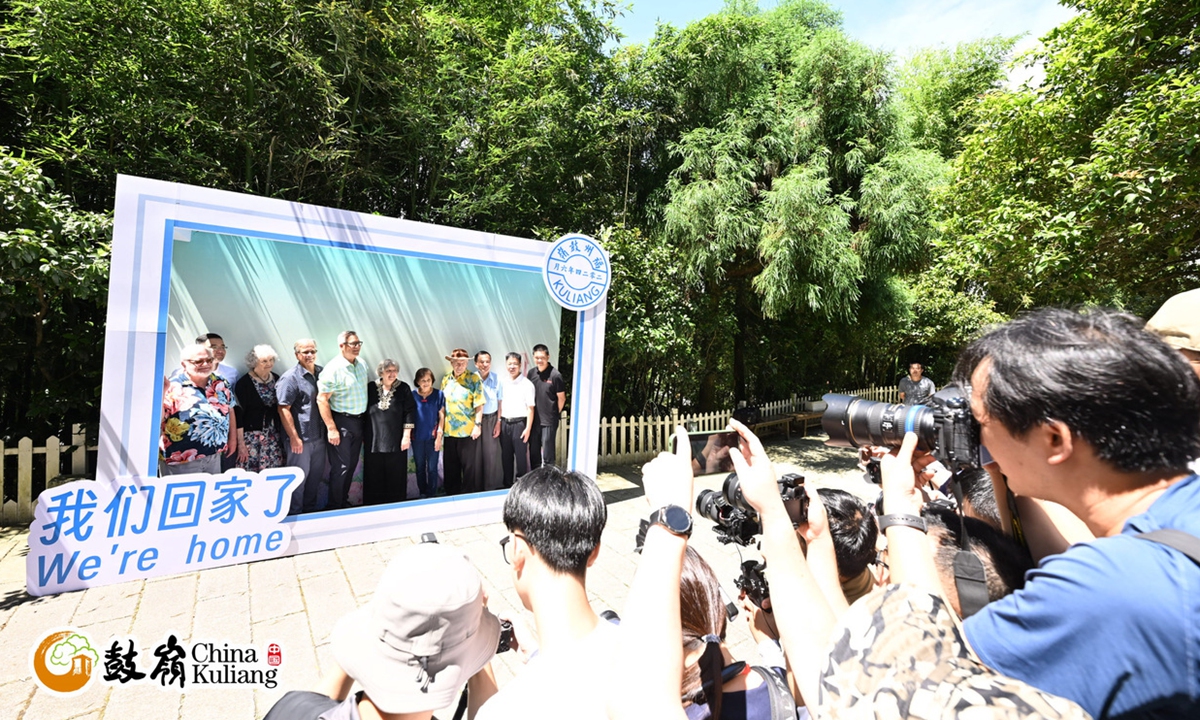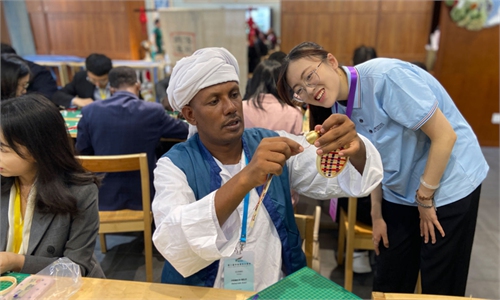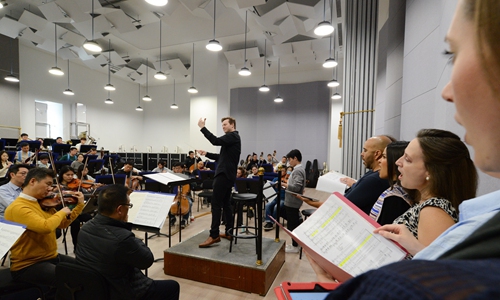ARTS / CULTURE & LEISURE
Students, guests bond with Kuliang
China, US youth bolster friendly generational ties

About 500 young Chinese and US students and guests gathered in Fuzhou, East China's Fujian Province, in late June to learn about the historical stories of Kuliang in Fuzhou and share their views on the two countries' cultures.
The 8-day-long festival titled "Bond with Kuliang: 2024 China-US Youth Festival" features approximately 50 activities in China and US cultural communication, including Kuliang Tea talks, intangible cultural heritage exhibitions, China-US documentary screenings, and so on. The event is scheduled to conclude on Saturday.
Chinese President Xi Jinping on Monday sent a congratulatory letter, expressing his warm congratulations on the festival, according to Xinhua News Agency. Noting that the century-long bond with Kuliang is a story of friendly exchanges between the Chinese and US people, Xi said he was pleased to see young people from all walks of life in China and the US gather in Fuzhou to relive the story of Kuliang, pass on the love for Kuliang, and help enhance exchanges and understanding between the two peoples.
Elyn MacInnis, representative of "the Friends of Kuliang" and daughter-in-law of Donald MacInnis, a member of the Flying Tigers who helped China fight against Japanese troops during the War of Resistance against Japanese Aggression (1931-45) and later taught in a university in Fuzhou for several years, has been studying Kuliang's history for many years.
During the event, she shared the story of how she and her husband visited Kuliang with the aim of tracing their roots in 2015.
MacInnis recalled the small scale of the Kuliang community at that time, when villagers made suitable shoes for foreigners, and the locals and the foreign people got along well. It was these shared memories that gradually fostered their friendship.
Cooperating with Kong Lingyi, a Chinese student from the Rhode Island School of Design, MacInnis designed a logo for Kuliang, featuring two hands forming a heart shape, symbolizing profound friendship, with a tree inside representing the enduring friendship of Kuliang. She said the surrounding circle represents the community, which can also be seen as the whole world and an appeal for world peace.
Lin Yinan, a professor at the East China University of Science and Technology (ECUST) and a close friend of MacInnis, told the Global Times on Thursday that two new museums focusing on the architecture history of Kuliang and eight US families' stories with Kuliang ranging from the late Qing Dynasty (1644-1911) to 1948 opened during the festival.
"Some descendants of the eight US families who participated in the festival were thrilled to see the newly opened museums. One of them volunteered to be a 'tour guide' to introduce their family's history to visitors," Lin said, adding that he hopes the museums can be a reminder for the next generations of the history and friendship between China and the US.
One of the spotlights of the festival is that many young artists from both countries come together and share their feeling to live in China and the US and how they infuse the two countries' culture into their art creation.
Carla Dirlikov, a US opera singer as well as the senior advisor and envoy for cultural exchange of the US President's Committee on Arts and Humanities, shared her insights with the Global Times on Wednesday, expressing that many US musicians wish to collaborate with Chinese musicians, and Fuzhou has greatly inspired her own music composition.
She noted the interesting experience of seeing girls with flowers in their hair in Fuzhou, which smelled fragrant and added depth to her understanding of the song "Mo Li Hua" (Jasmine Flower).
"Now when I hear the song 'Mo Li Hua,' I hear it differently because I smell the flowers here and I have lived the experience of being here. When I will perform 'Mo li Hua,' I will tell my story of being in Fuzhou," Dirlikov said.
Dirlikov also shared her experience interacting with Chinese composer Zheng Xiaoying through the US State Department program, emphasizing the importance of listening to others' viewpoints and ideas to build mutual trust.




